
Senegal chapter five
Mar Lodj and the Saloum delta.
After breakfast Amadou leads us out from the hotel to the street. A horsedrawn cart is waiting for us, its driver holds the horses’s bridle.
Roberta has her son pose on the cart and we take photos before we all clamber aboard. The cart is simple—a wood platform with two wheels supporting it—and we bounce our way across the field I walked the day before en route to the village.
We stop in front of the church and Amadou takes us inside. It’s a still, cool space with just the four of us and we admire the construction and the tranquil nature of the space before stepping back outside.

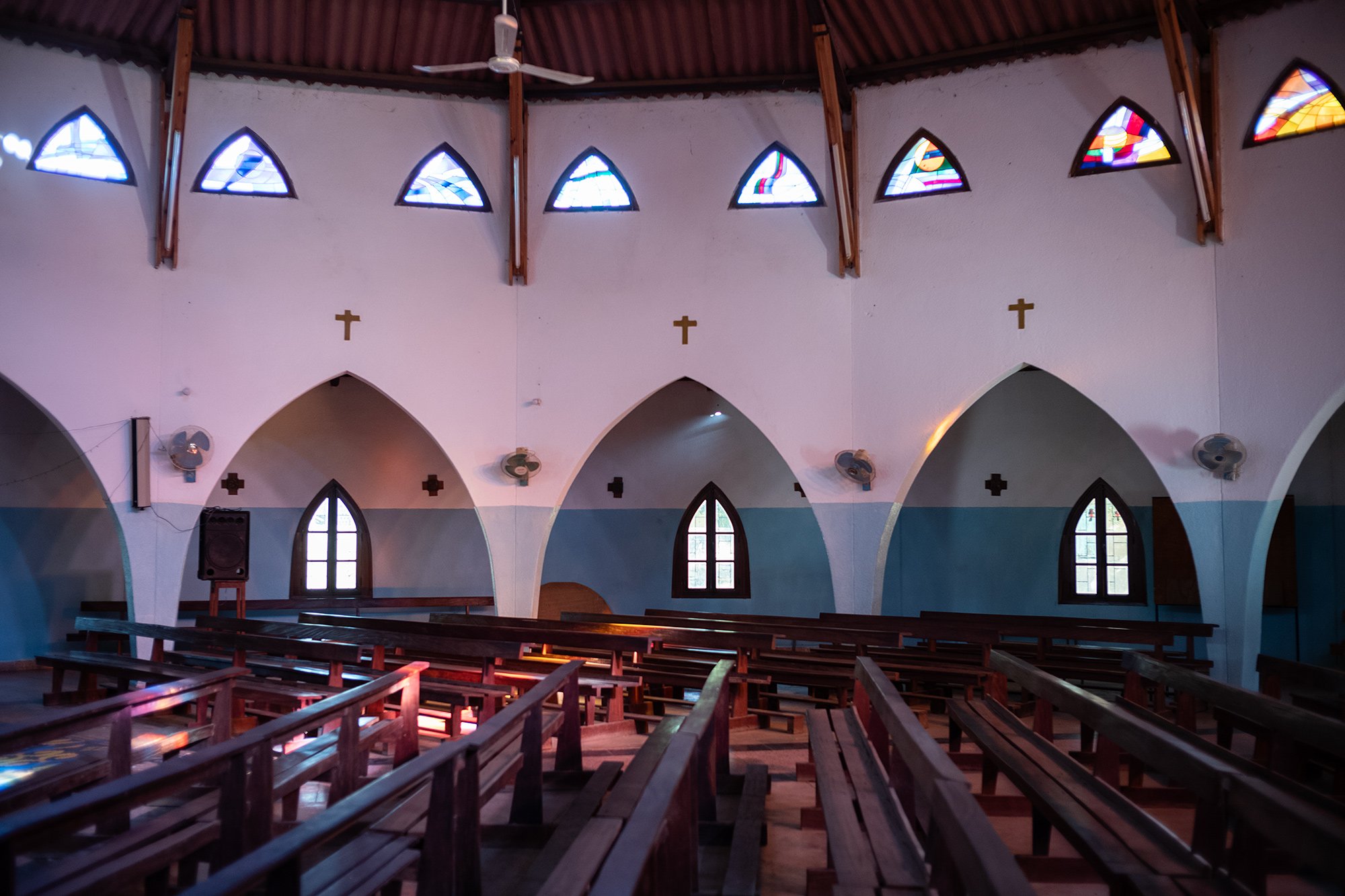
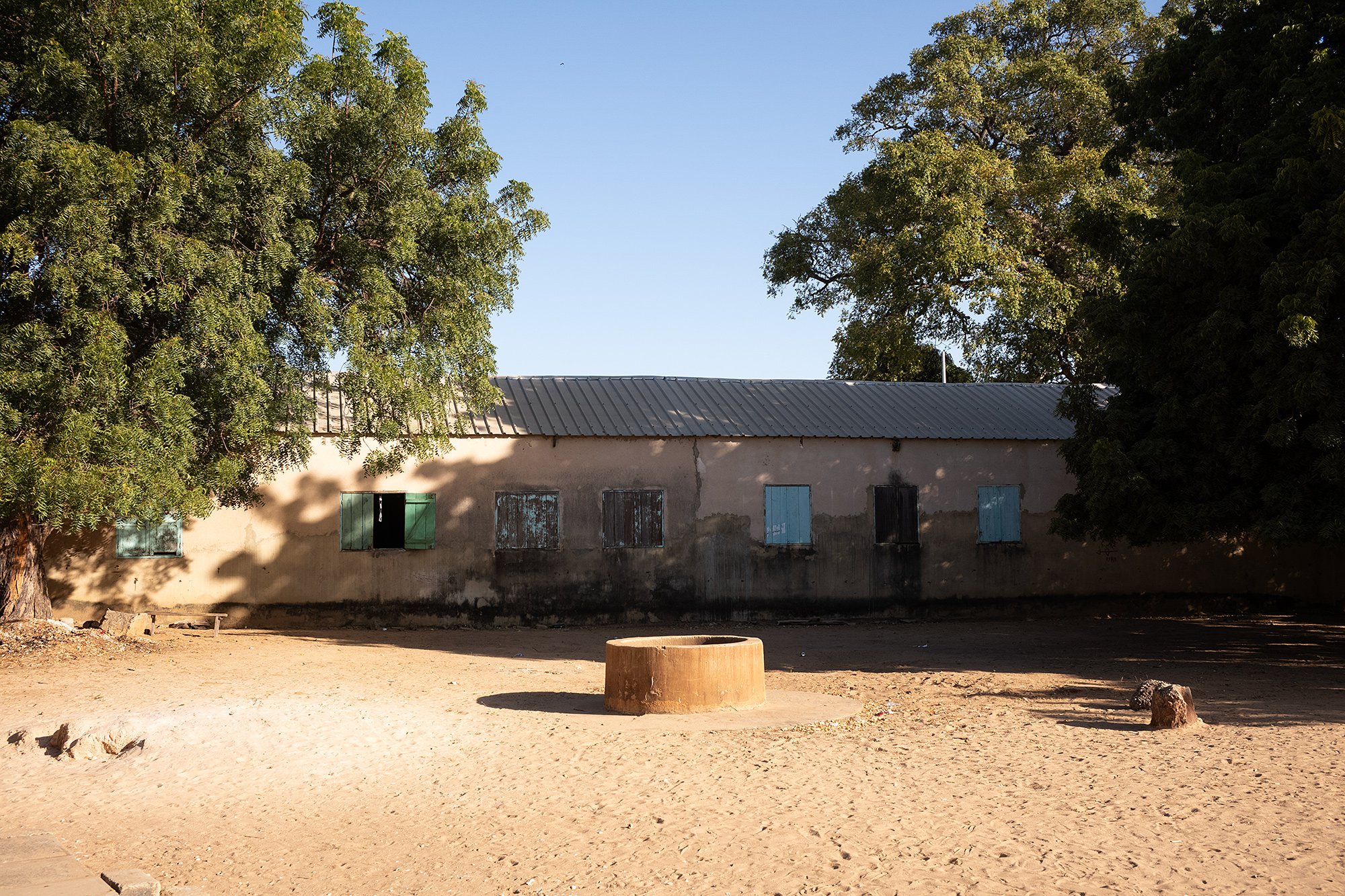
Our cart is waiting for us and we retrace the steps I took the day before, past the shrine covered in bouganvilla to the main square. Amadou shows us the town drum, which I had missed seeing the day before. It’s used to send messages to the village on major events.
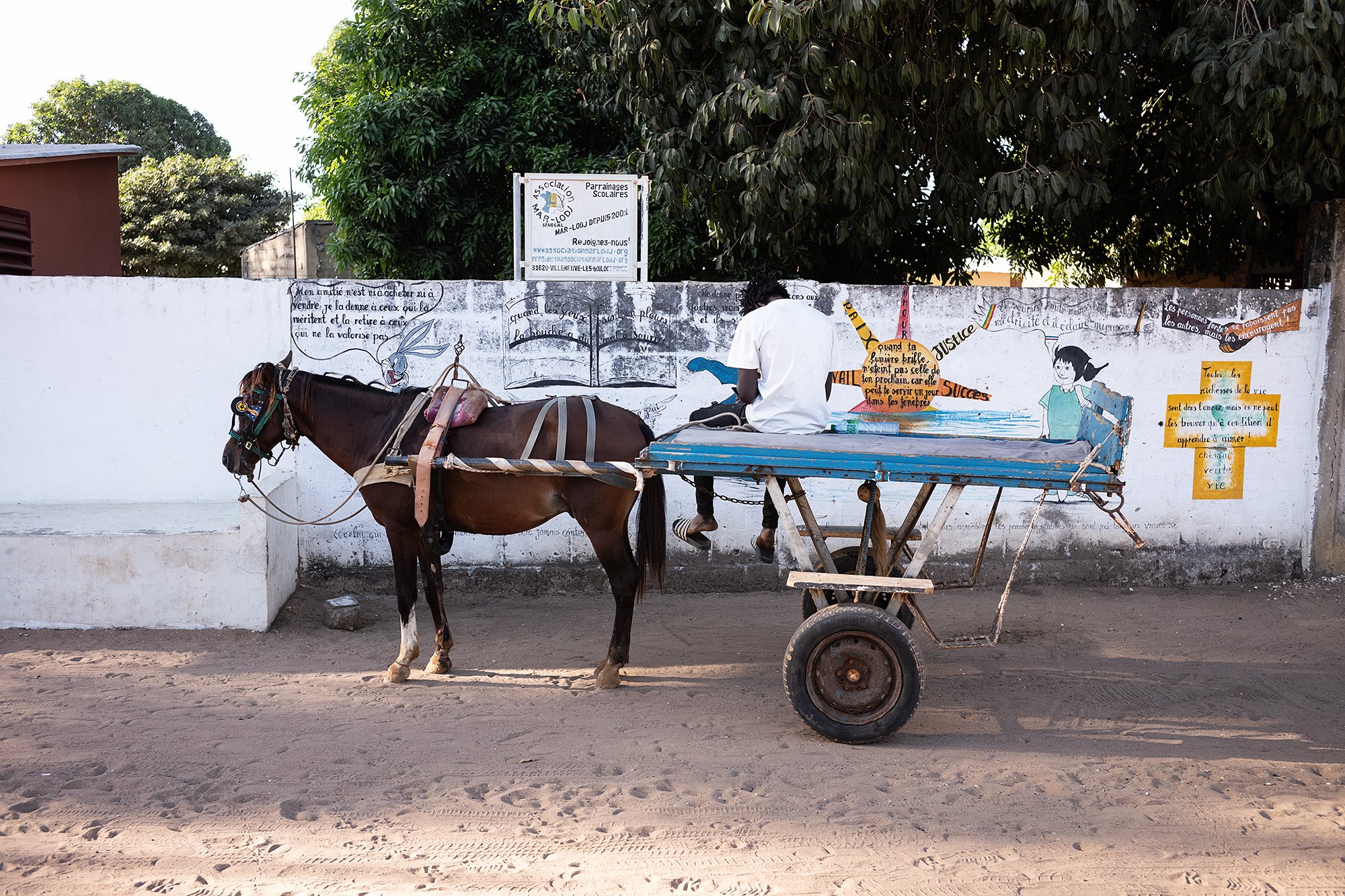

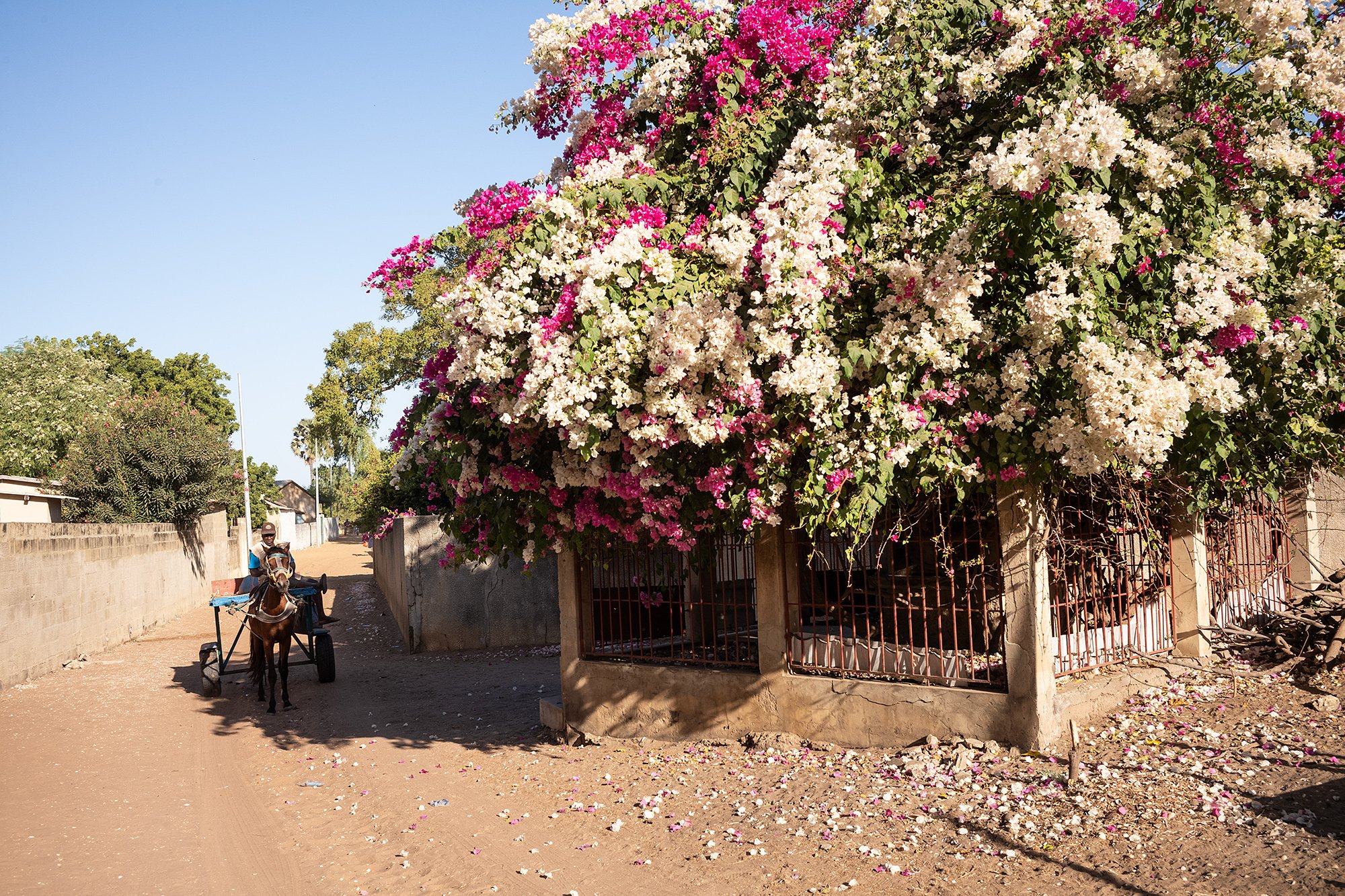
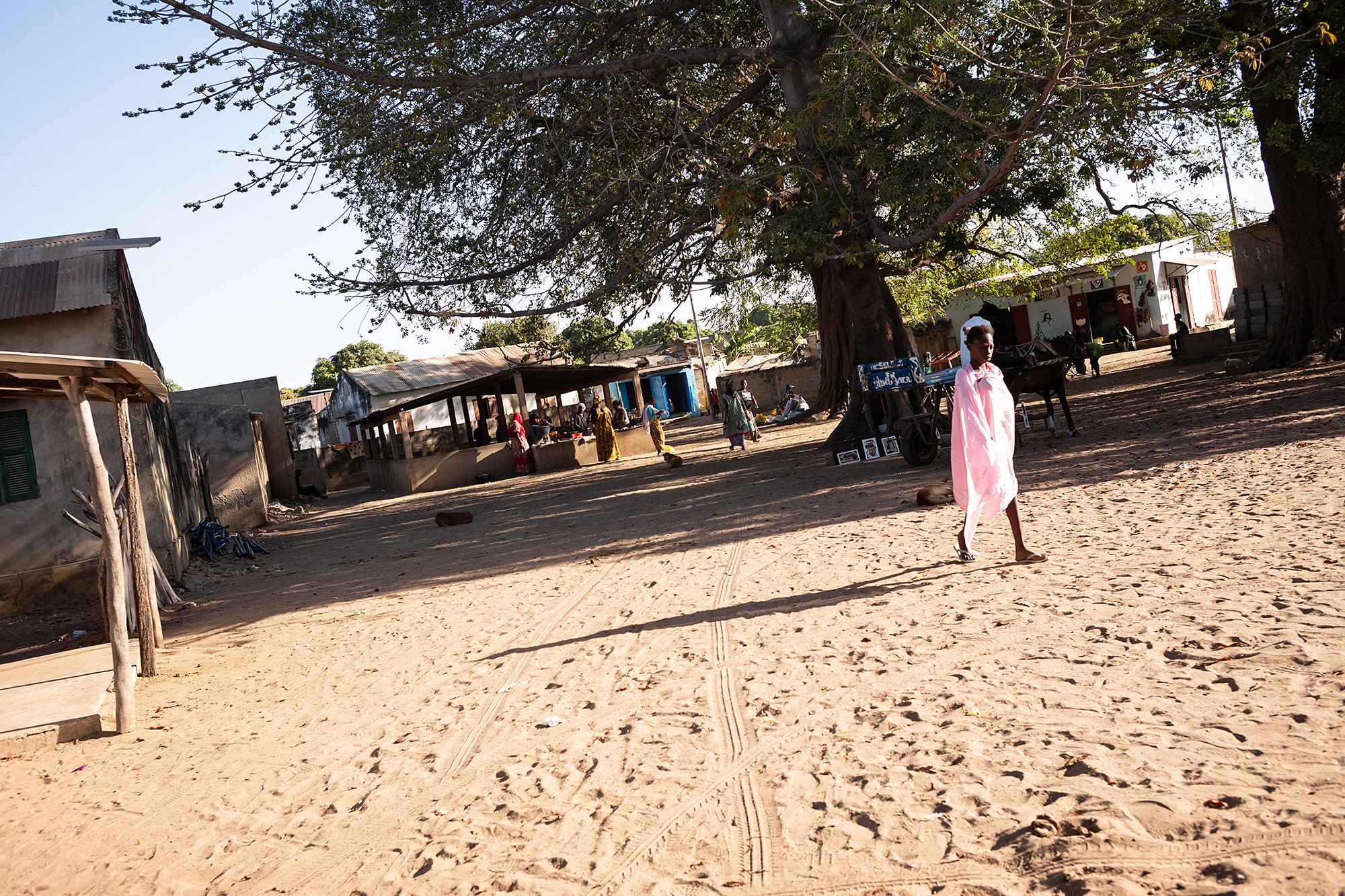
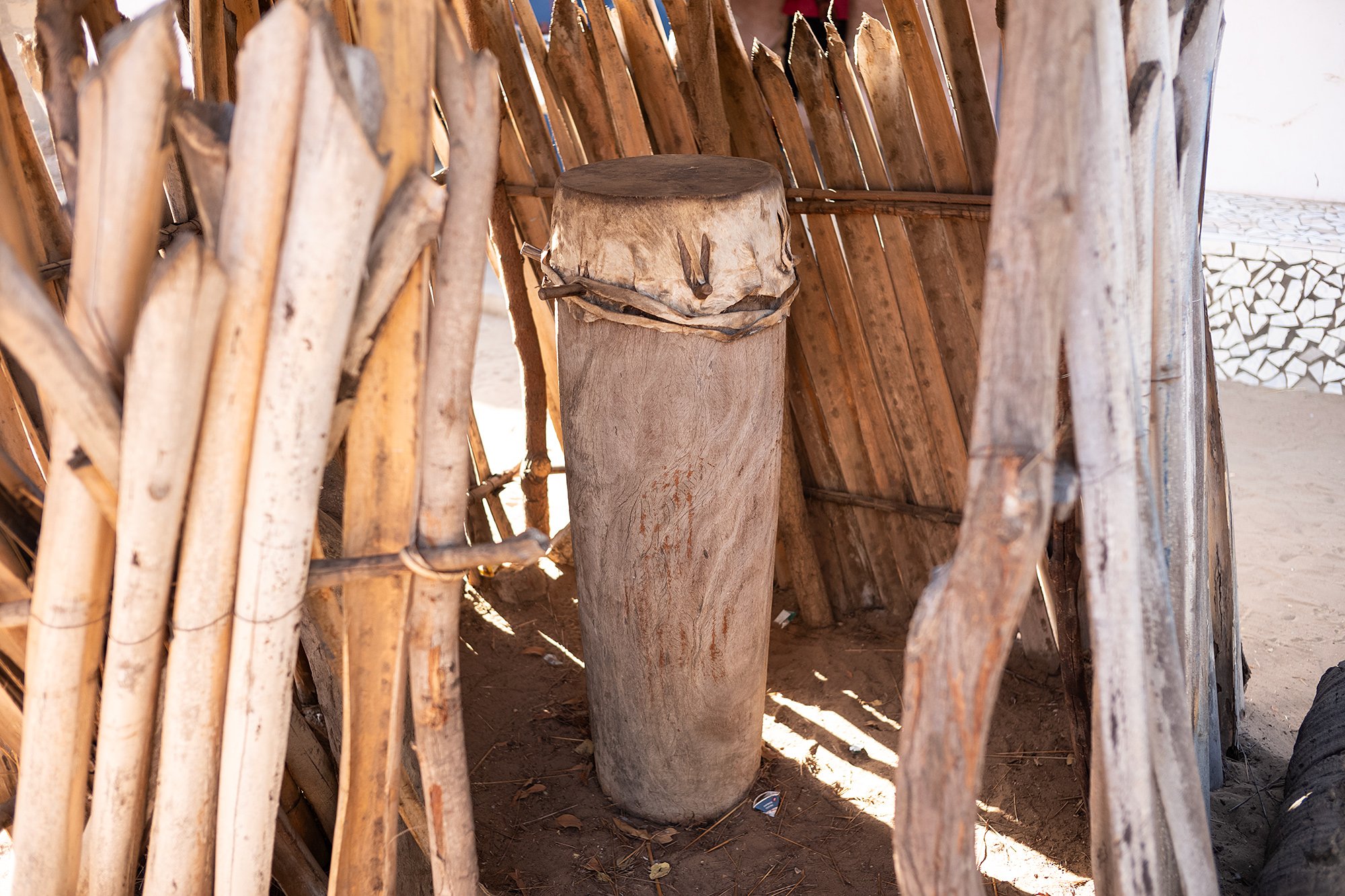
In the square he leads us to the market where women are buying and selling fish. Women scrape the scales off into rubber buckets and I point to the various fish and ask their names, wondering what we might be having for dinner.
One Amadou tells me is called idono. I repeat it after him. No, he tells me. Idono. I say it again. No, he says again. I don’t know. We laugh over my misidentification and move on.
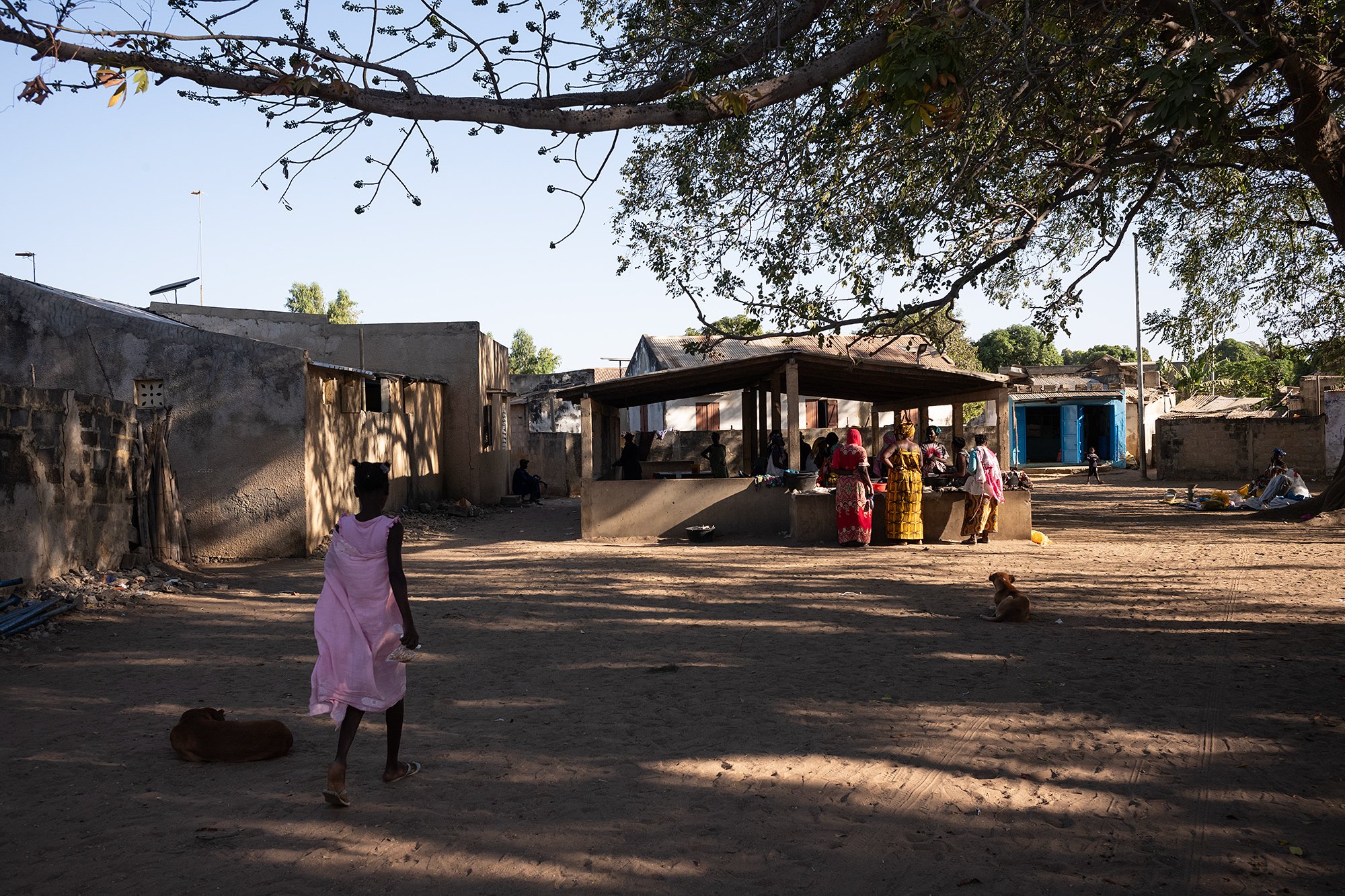
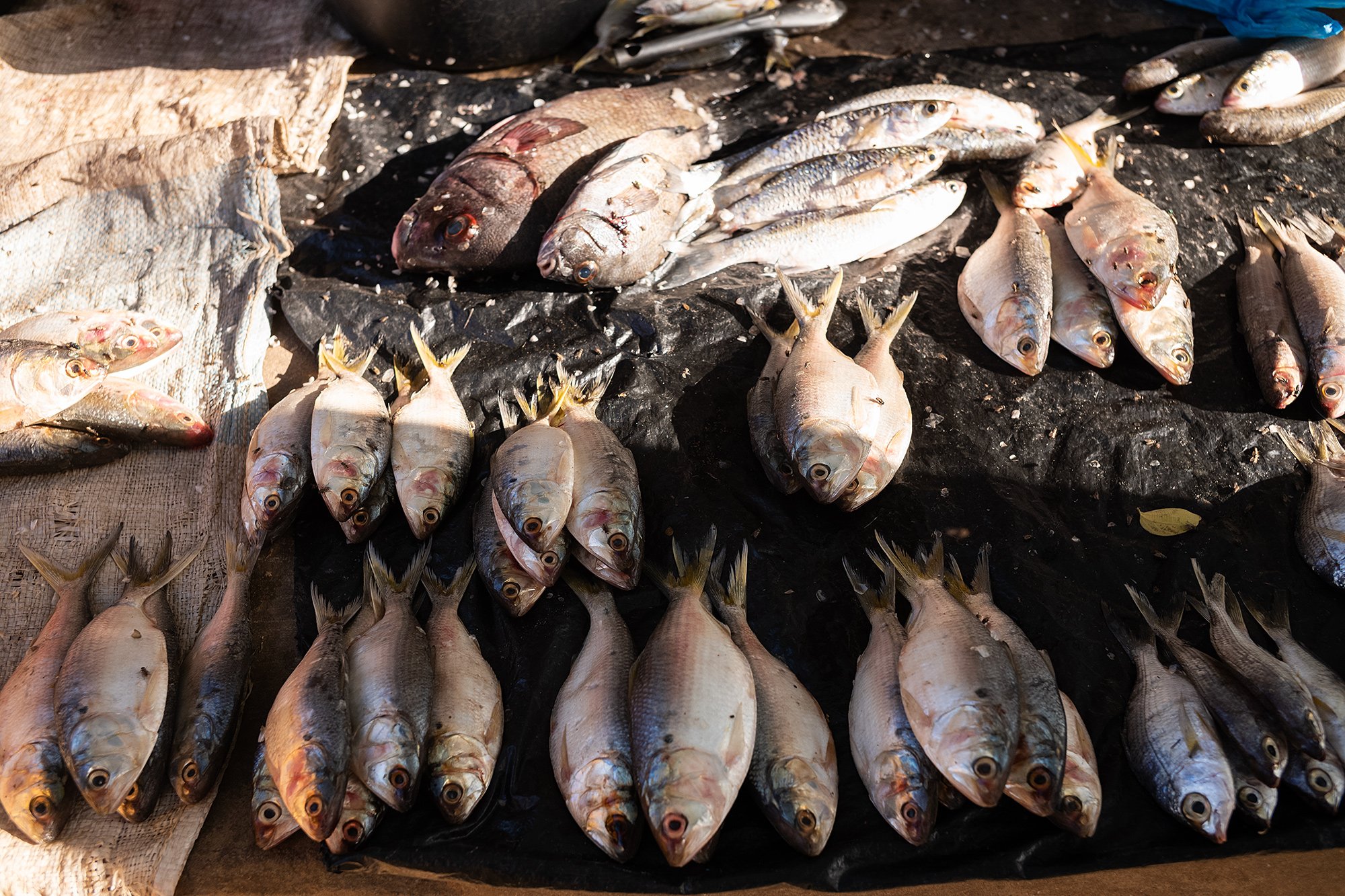
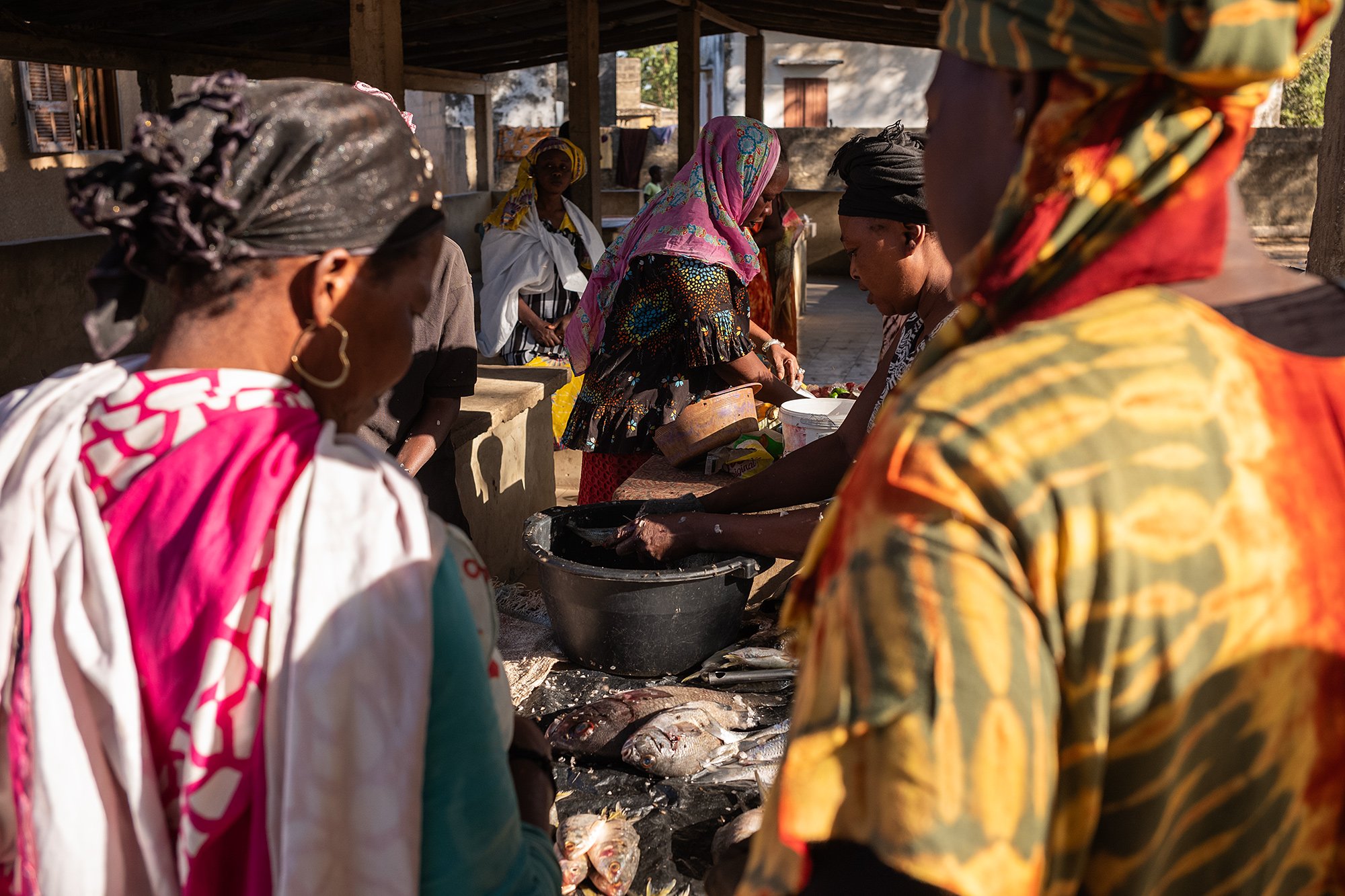
We reboarded our cart and set off out of the village. Amadou told us that we’d be going on a ride through the dry forests and the surrounding flatlands to get a sense of the landscape. We bounced along through small villages and across open floodplains, dry now but submerged during high tides.
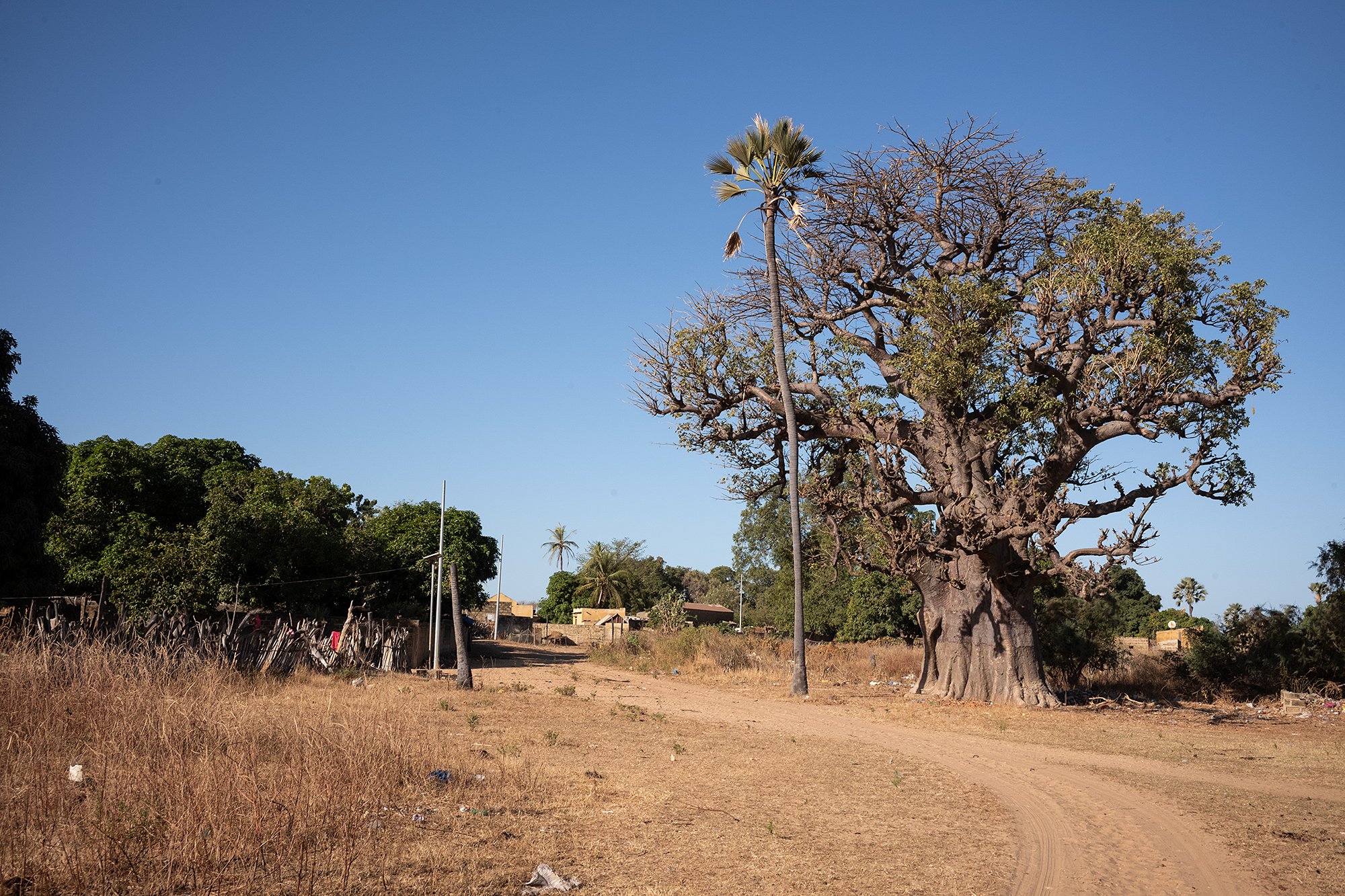
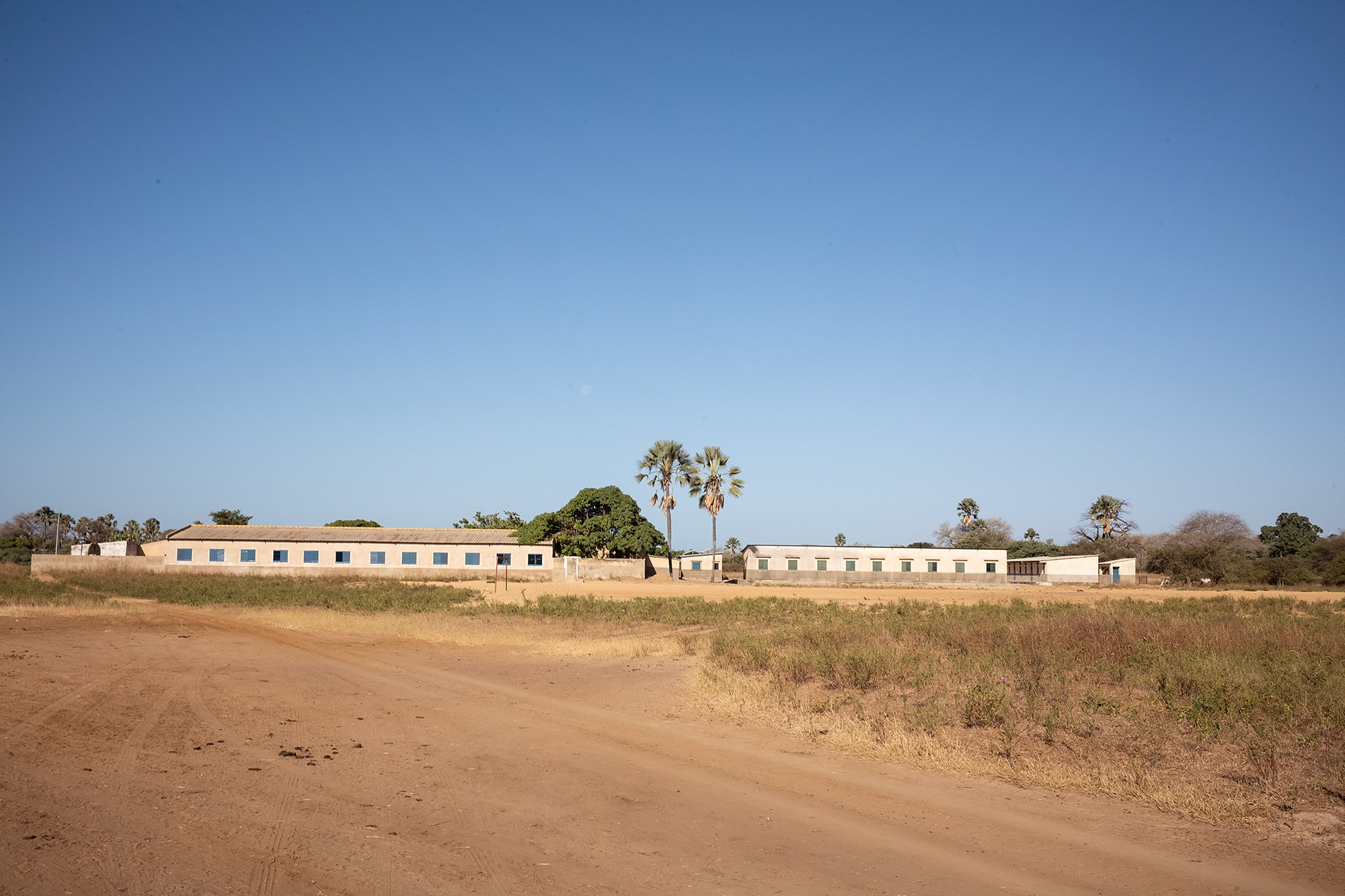



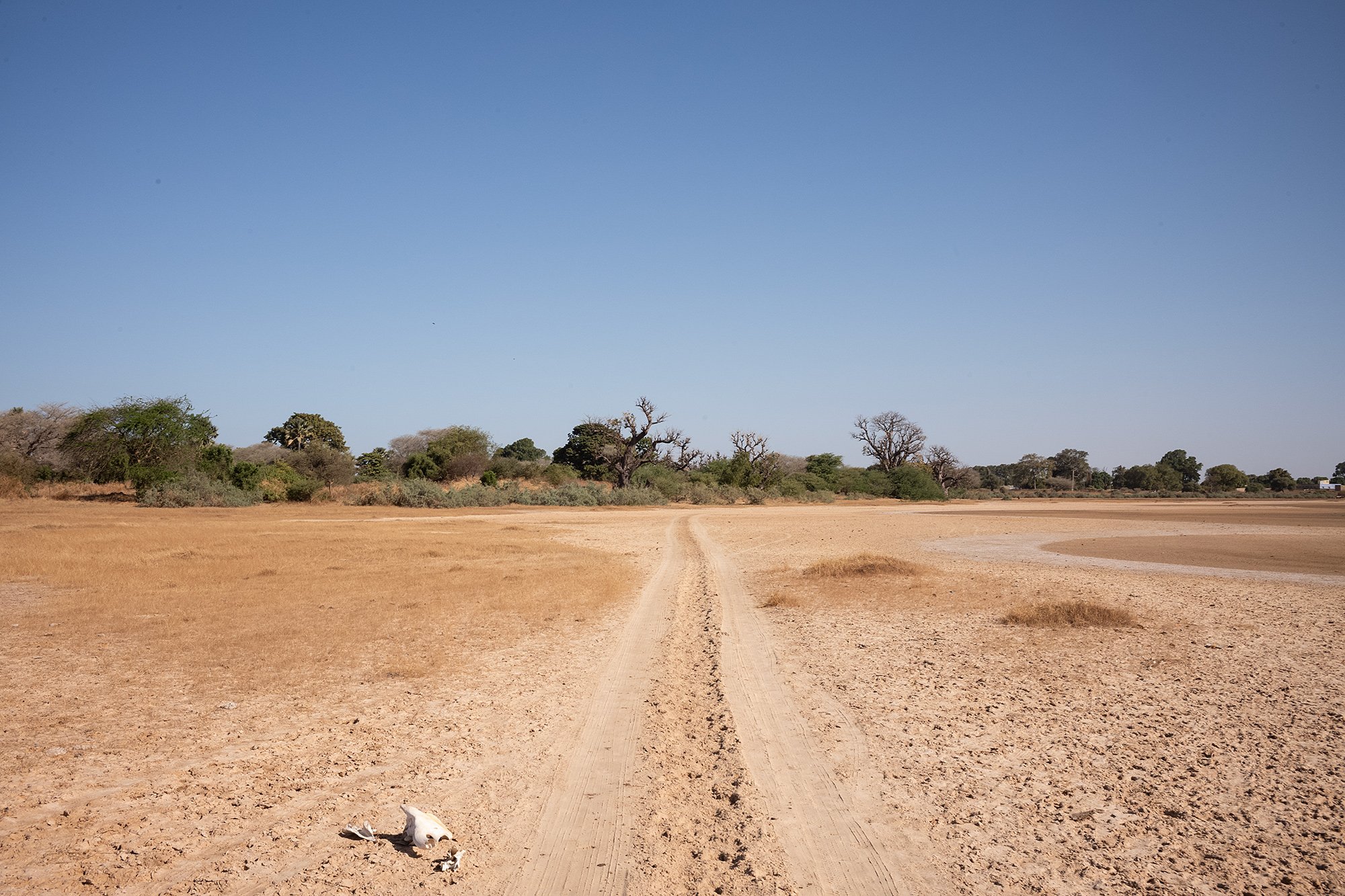
Back at the camp Amadou had us put on our swimtrunks. We were headed into the waterways that cut through the mangrove forests that make up so much of the delta. He asked if we were ready for a bbq in the delta. We offered a resounding yes!


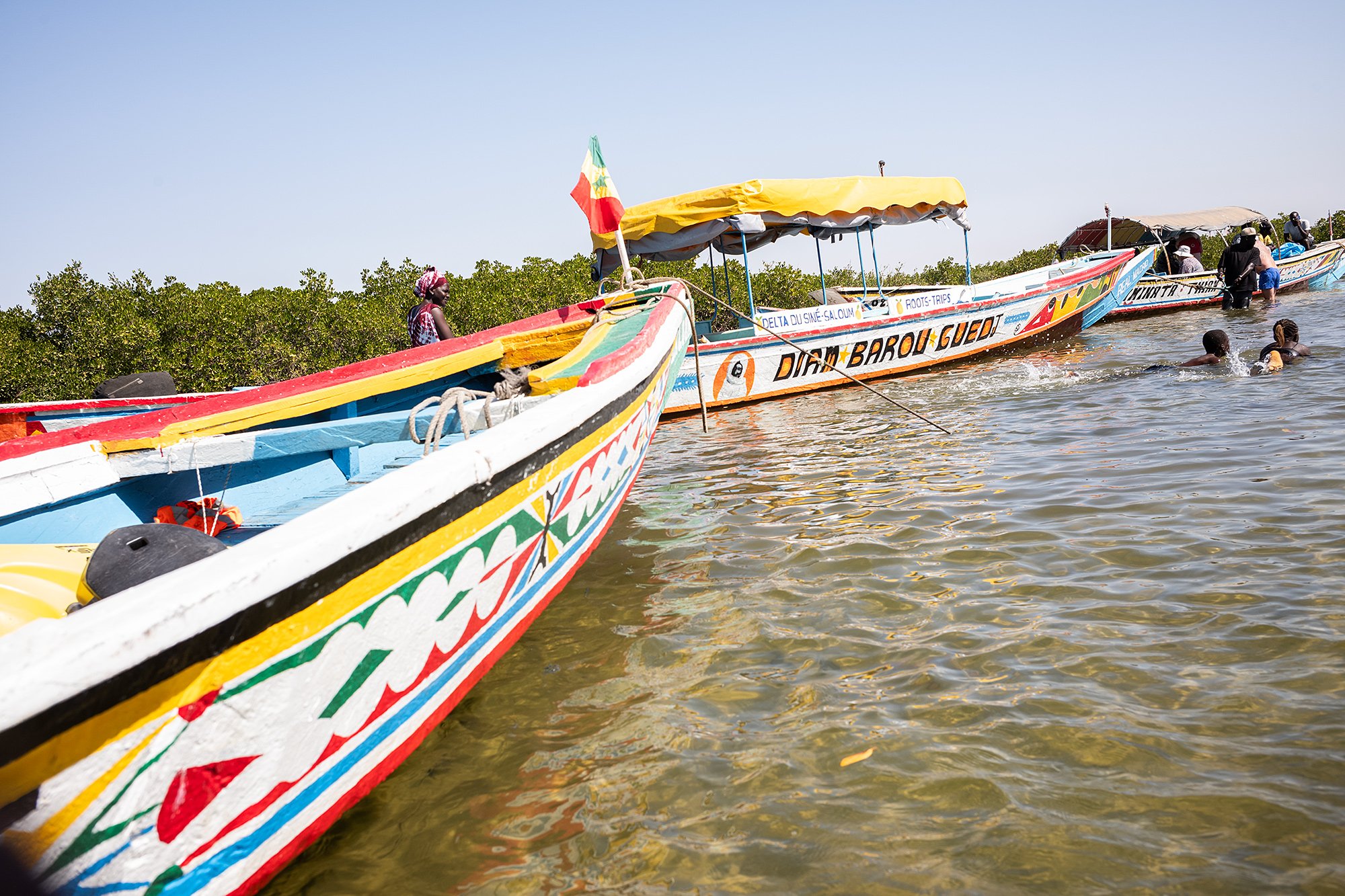
What we didn’t realize was that when Amadou told us that lunch would be in the delta, it meant we would be in the delta. As we made our way through the forests, we passed a few docks and floating restaurants until we found a shallow spot in a bend of the river. A few boats had already parked and set up their tables and chairs. I helped our chef and captain set up the chairs as they set up the grill. We were all up to our knees in the water.
We had brought a small kayak and I took it for a spin, padding further up into the forests until I was worried I wouldn’t be able to find my way back. One of the boats had brought a set of drums, and I listened and followed them back to where our grill was aflame.
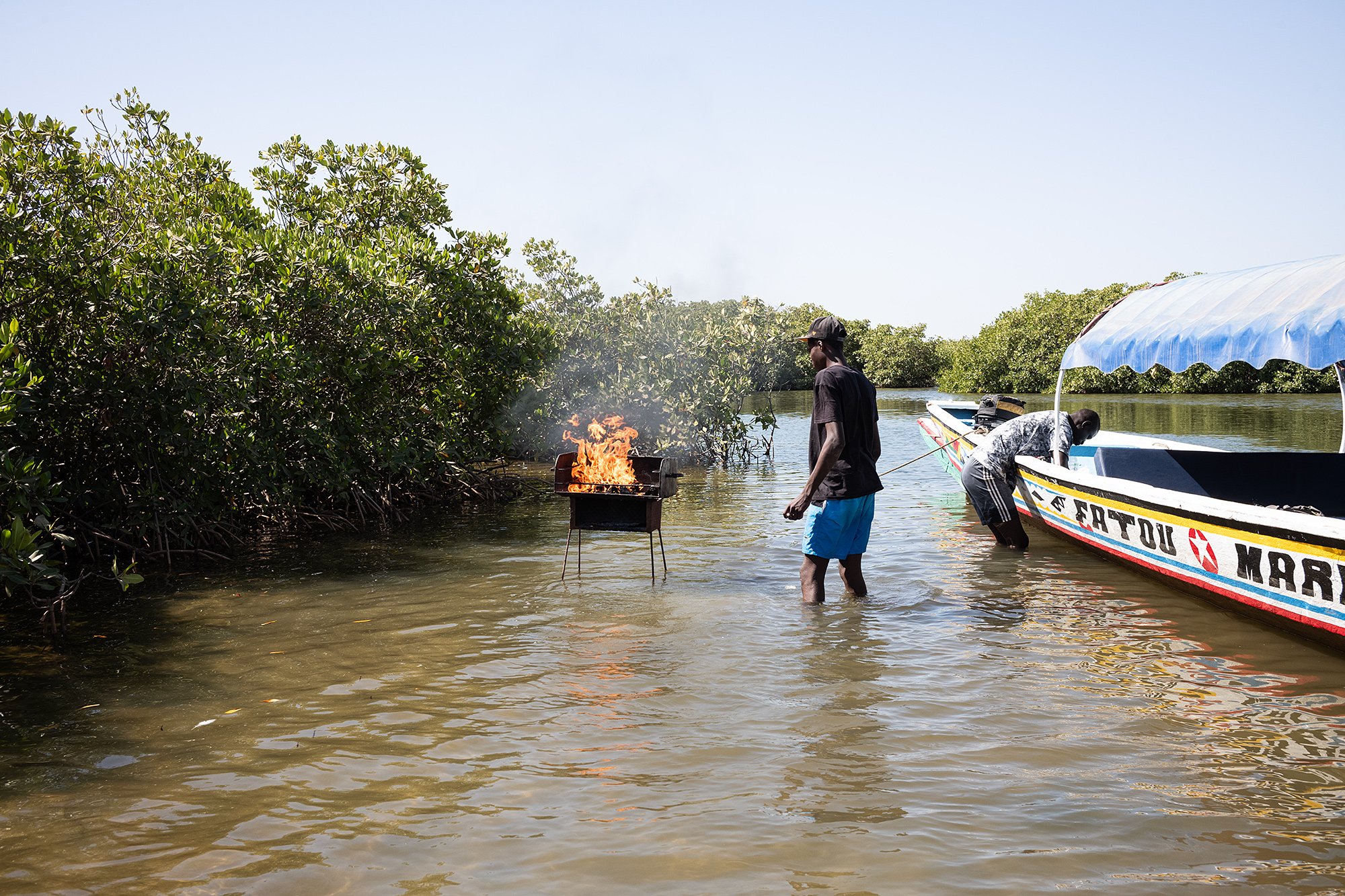

Once the grill had settled our cook started making our first course, shrimp in a delicious garlic sauce. He cooked them in a pot, slowly, letting them steam with the lid on. As we waited I watched the activity on the other boats and in the water.
A large African family with many children has accompanied a French couple and they splash each other as the Frenchman lifts the children up and throws them in the water. Soon they centure over to borrow our kayak and shriek with laughter as they overloaded and capsized it, dousing them all once again.
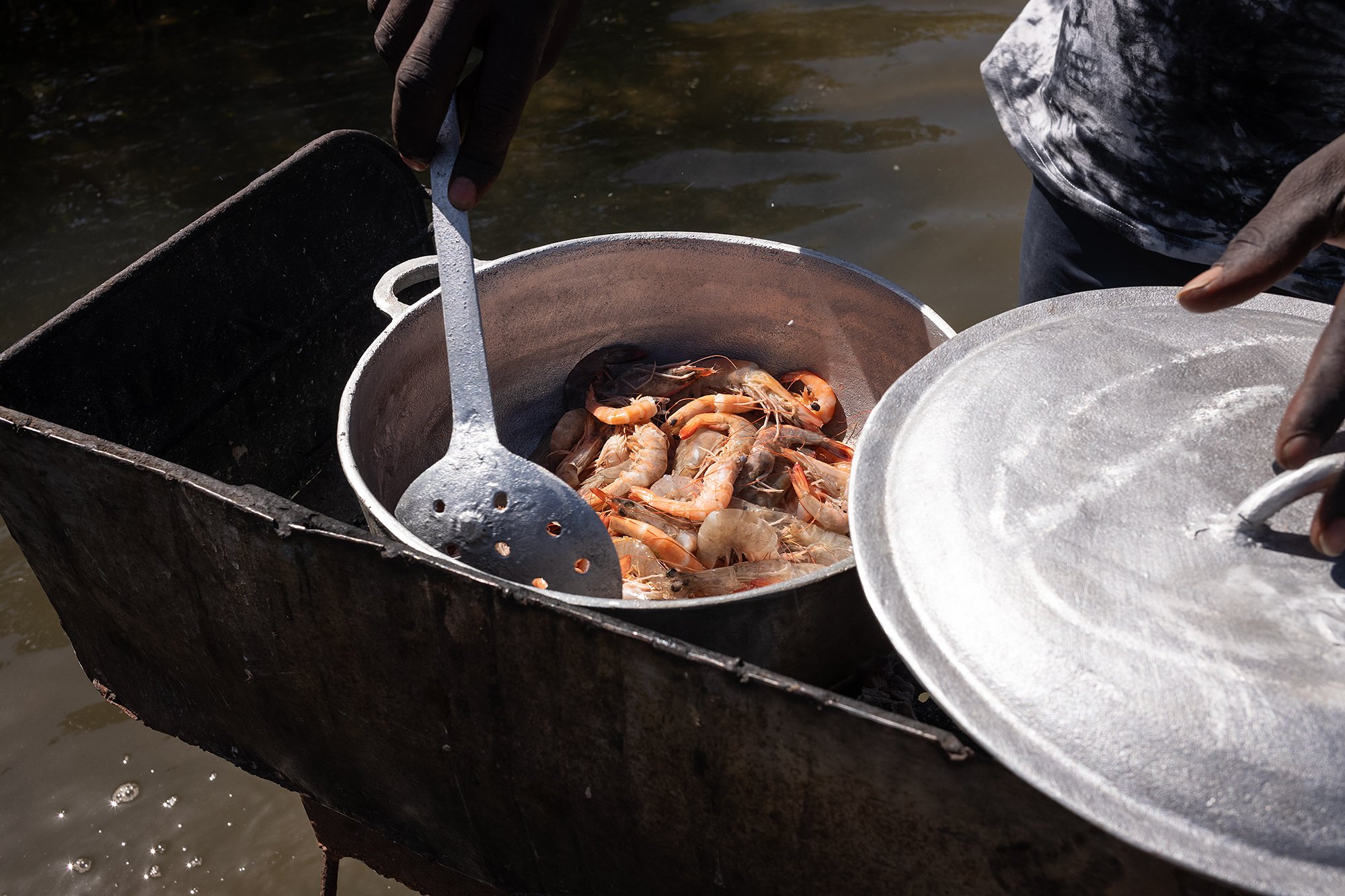
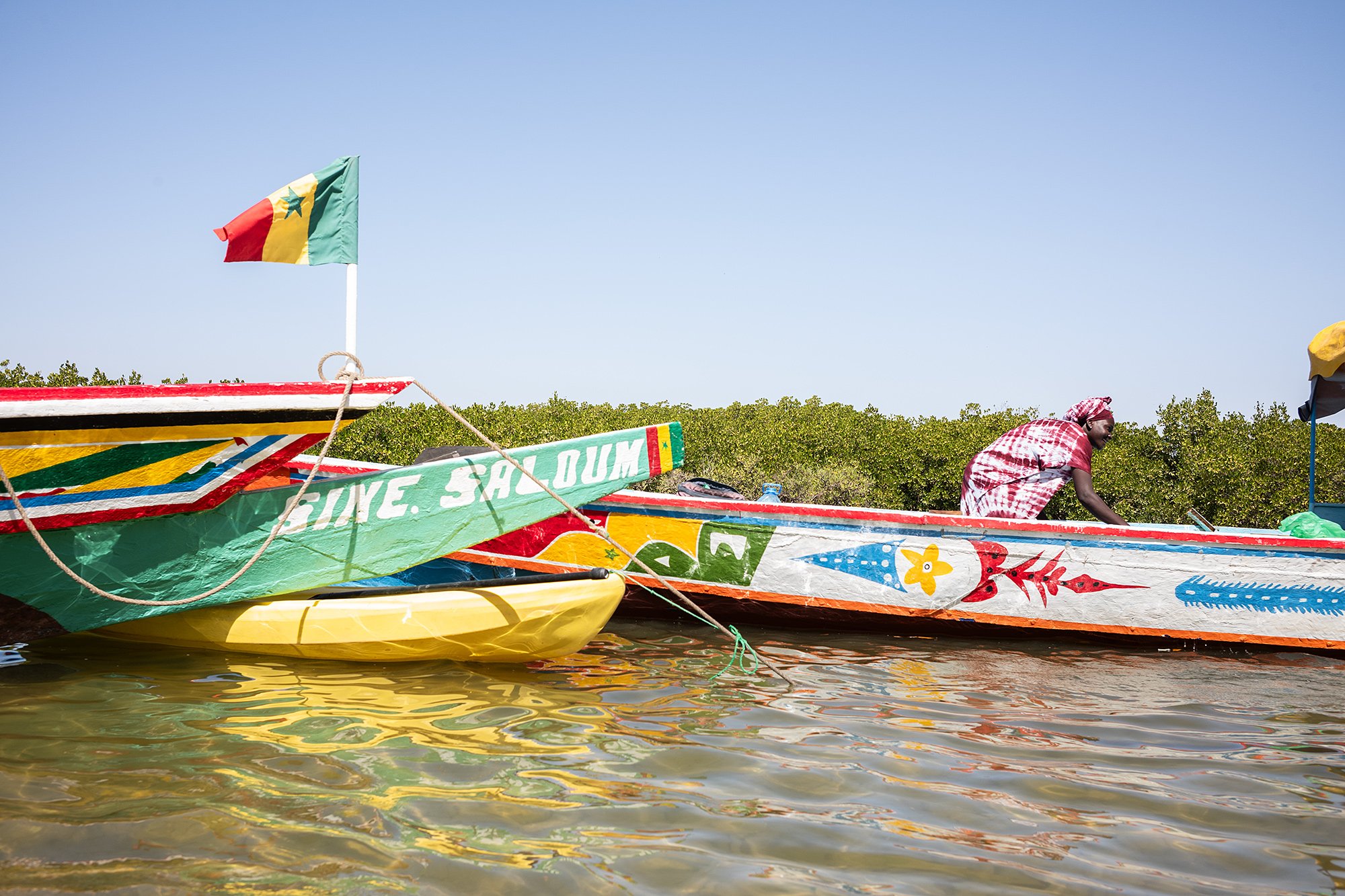
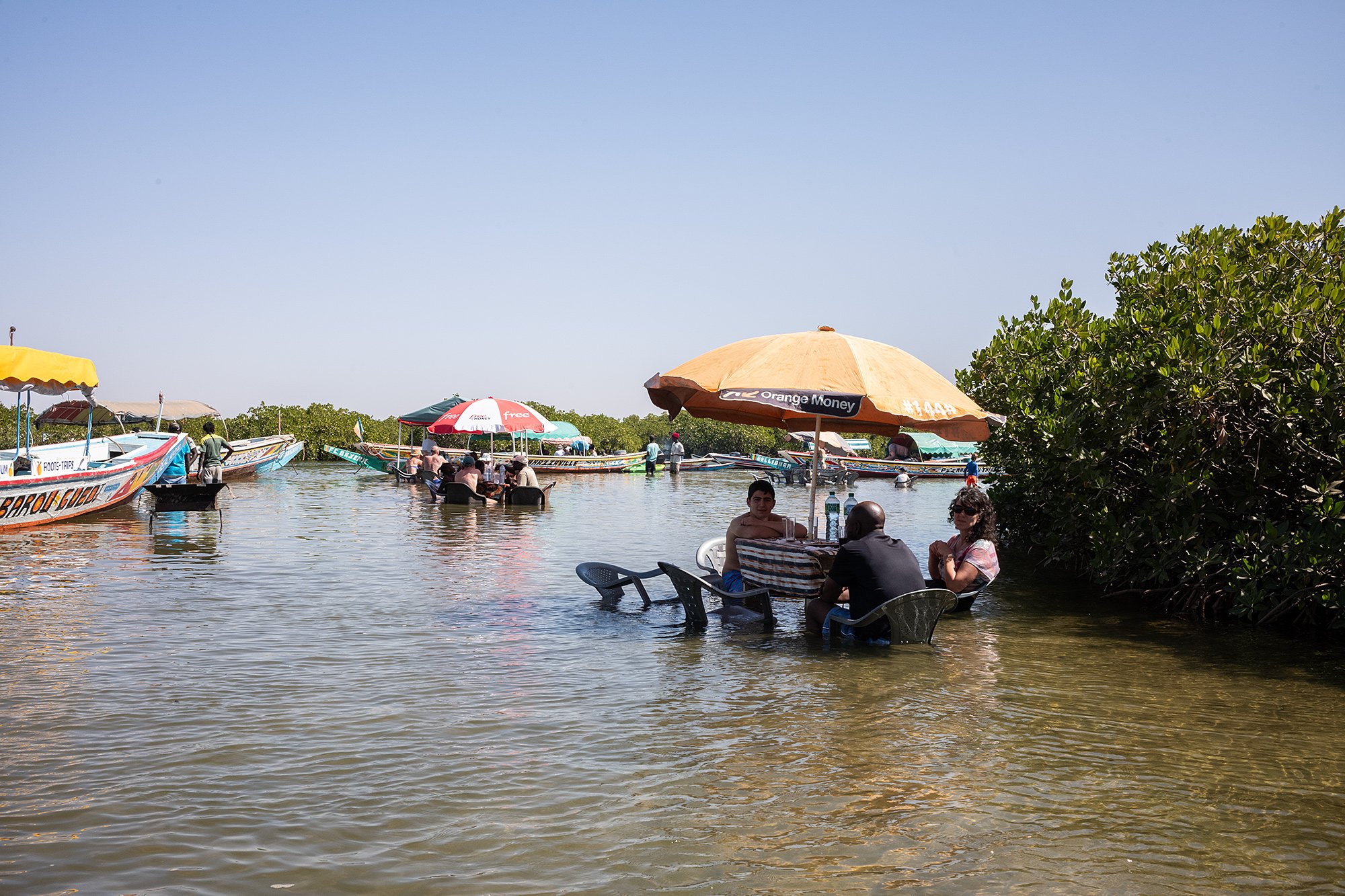
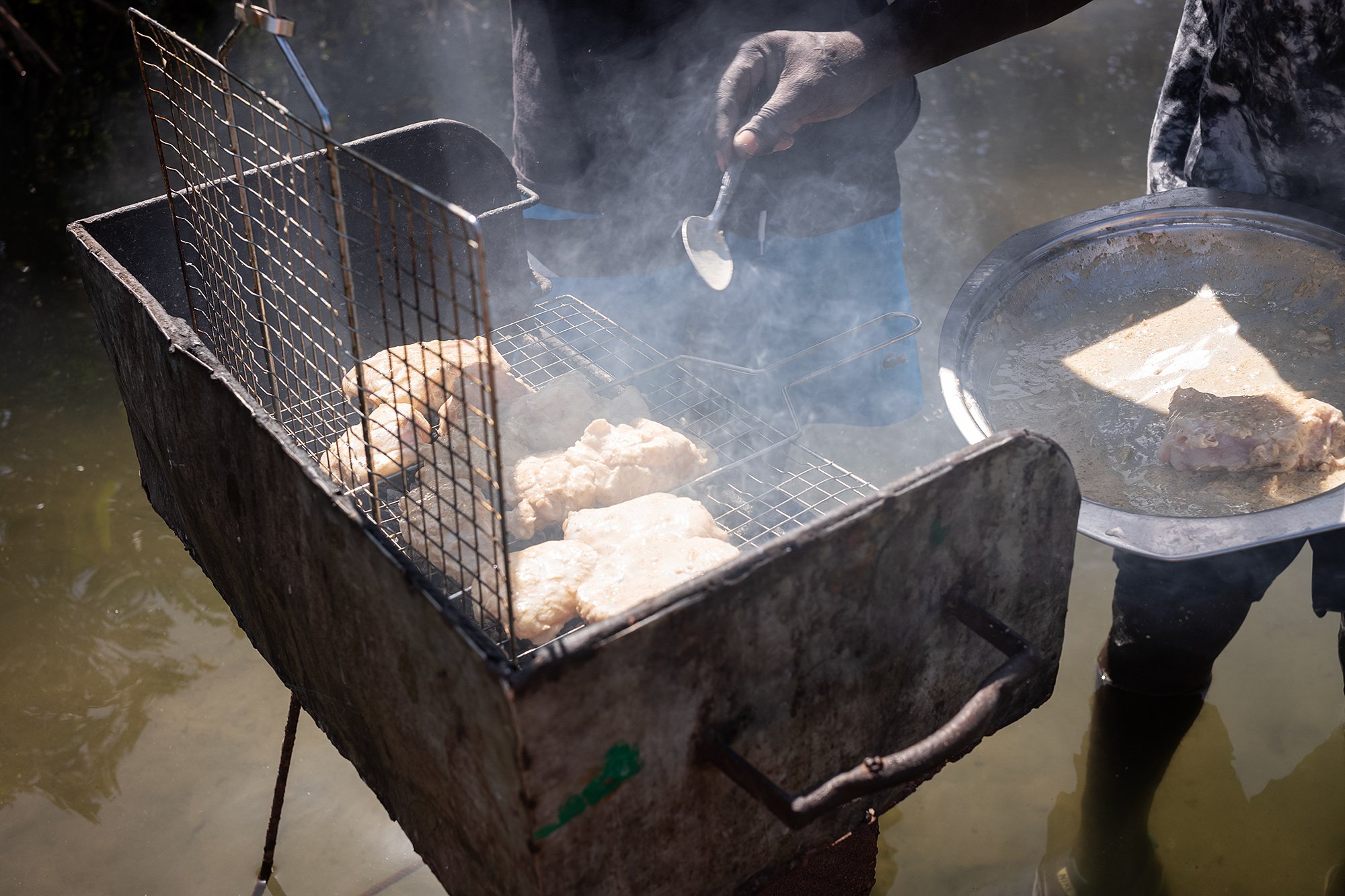
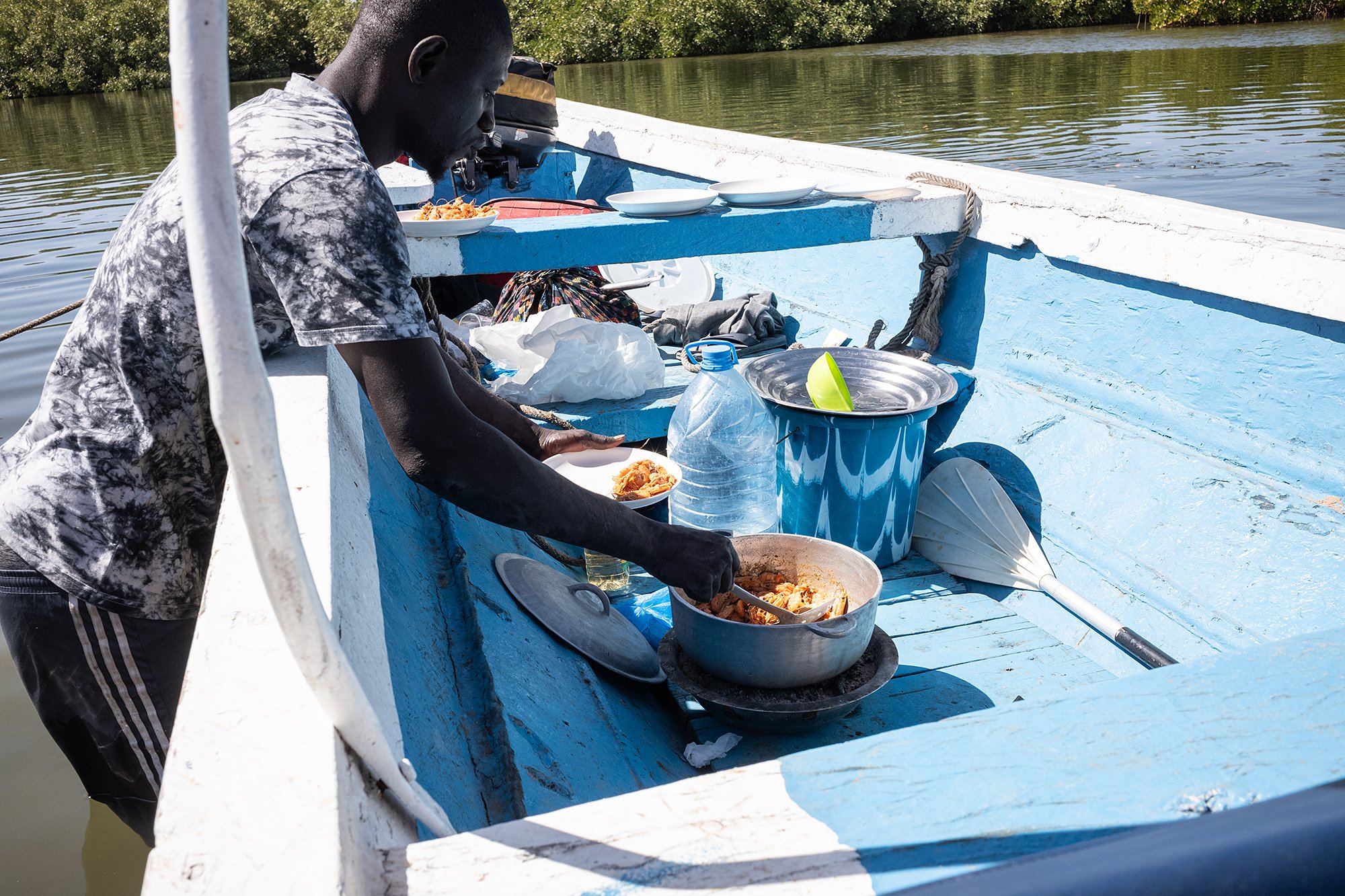
We eat our shrimp and grilled fish half submerged. As the day grew long, the tides receded so that by the end of our meal we are almost sitting on a dry chair. The water is cool, the sun hot overhead.
The afternoon wears on. Boats begin to pack up and leave, their humming engines fade as they disappear into the mangroves. The children calm down. They are done chasing the Frenchman, throwing water at each other.
Soon there are just three boats left. An African family, the African family with the French couple, and ourselves. We start to clean up. The tide has gone out and the water has become shallow. The bottom of the boat seems to scrap the sand.
We have started packing up as if there was a tacit understanding that it was time to leave. No one said anything, it just felt like it was time. As we had sat other boats had come and go, each looking for a spot to set up camp. Amadou wanders around the corner and comes back to report that a lot of boats have moored just beyond our view. He’s surprised at the number.
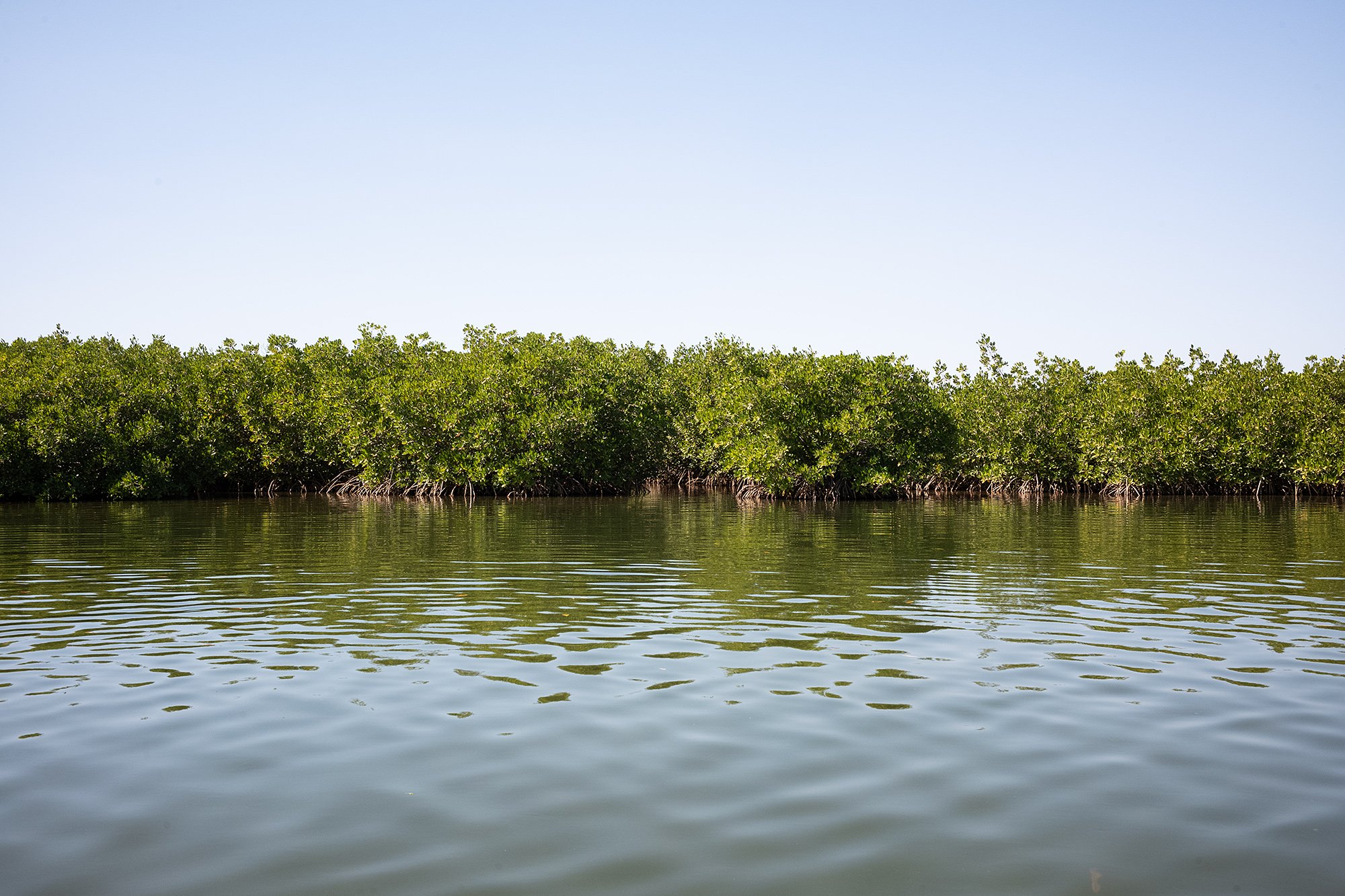
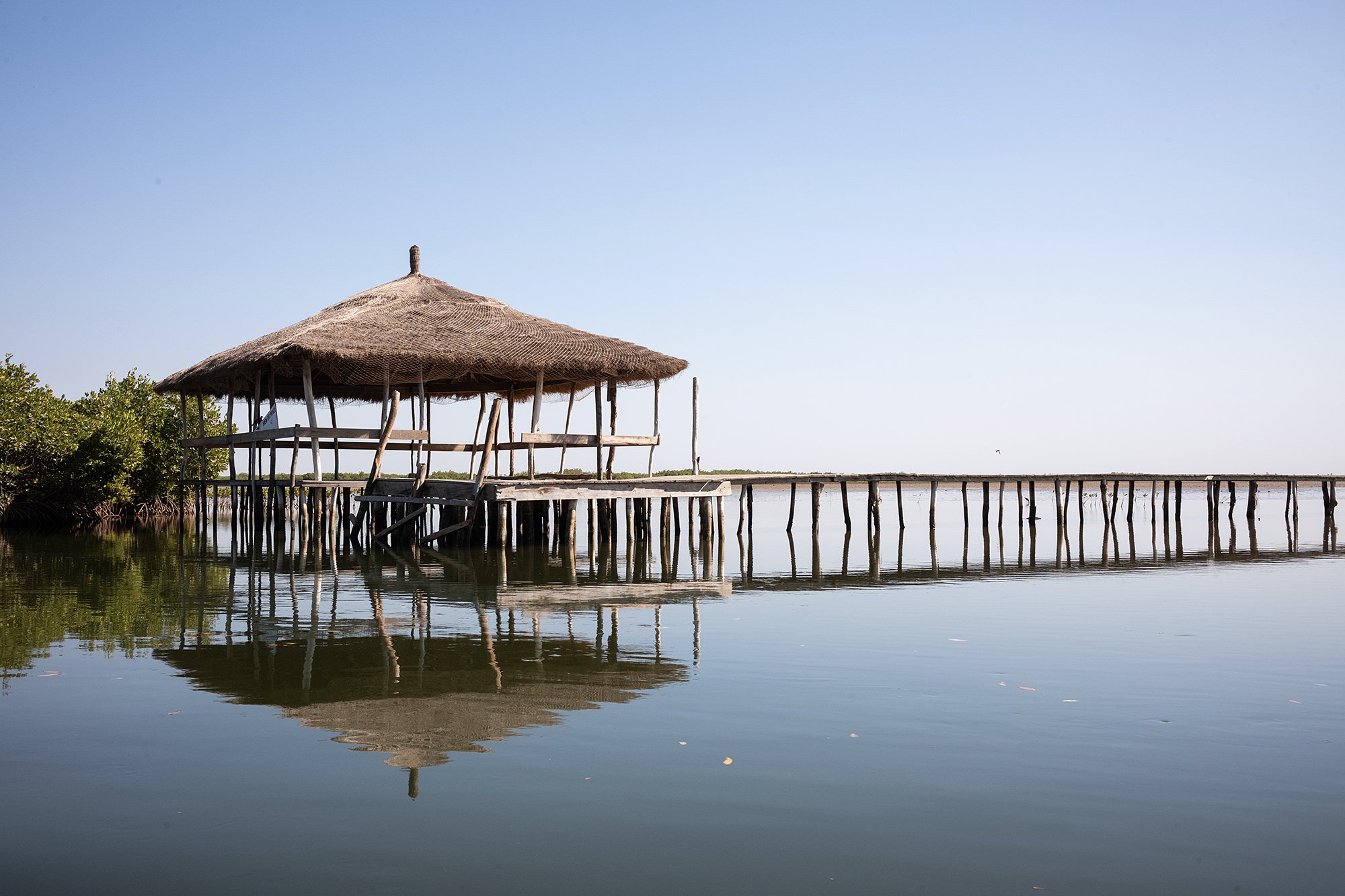
Back at the hotel I climb into a hammock with my book. A few women appear, rounding the corner of the hotel to come sit near the dock. A few more appear and then a few more. Soon there’s a crowd of women all waiting by the dock.
I meet Fadou and ask where they’re headed. They’re all from Junwah village, on their way home. They had come for her aunt’s wedding, which was held yesterday. It’ll take them about two hours to get home.
When the boat arrives I help them with their luggage, their drum, the sacks of stuff. They thank me as they board and I wave to them as they sail away.
As soon as they depart another boat arrives full of guests of the hotel and their many children. I help them unload. They’ve all reserved the huts by the water and the camp is filled with the children’s voices as they play on the hammocks, chase each other, invent games to play.

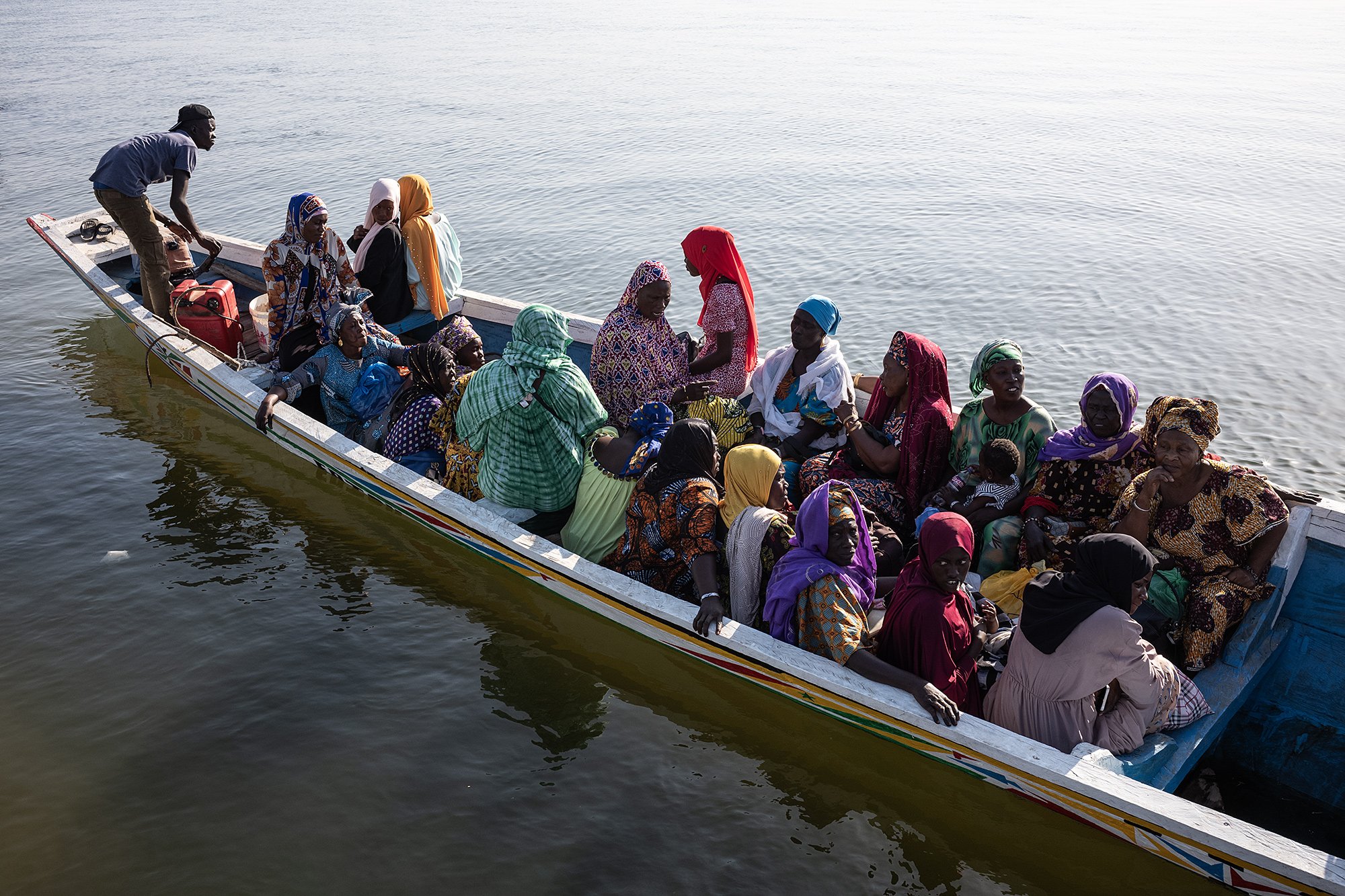
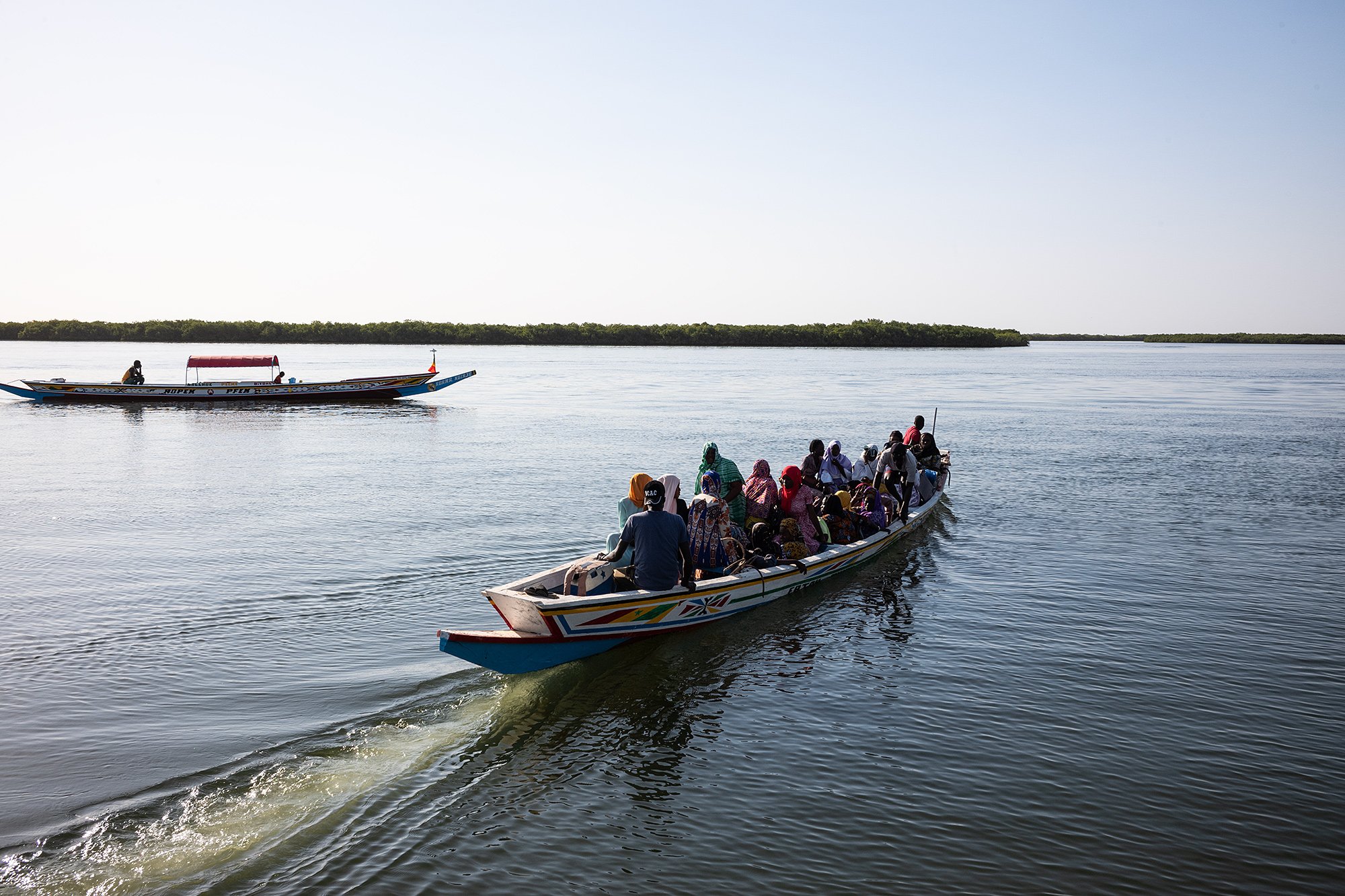
I go for a sunset swim. The water is cold but I’m happy for it. Soon the children are back out and in the water and I watch them play as I watch the sun set on another fantastic day in the delta.
30 December 2023
🇸🇳










